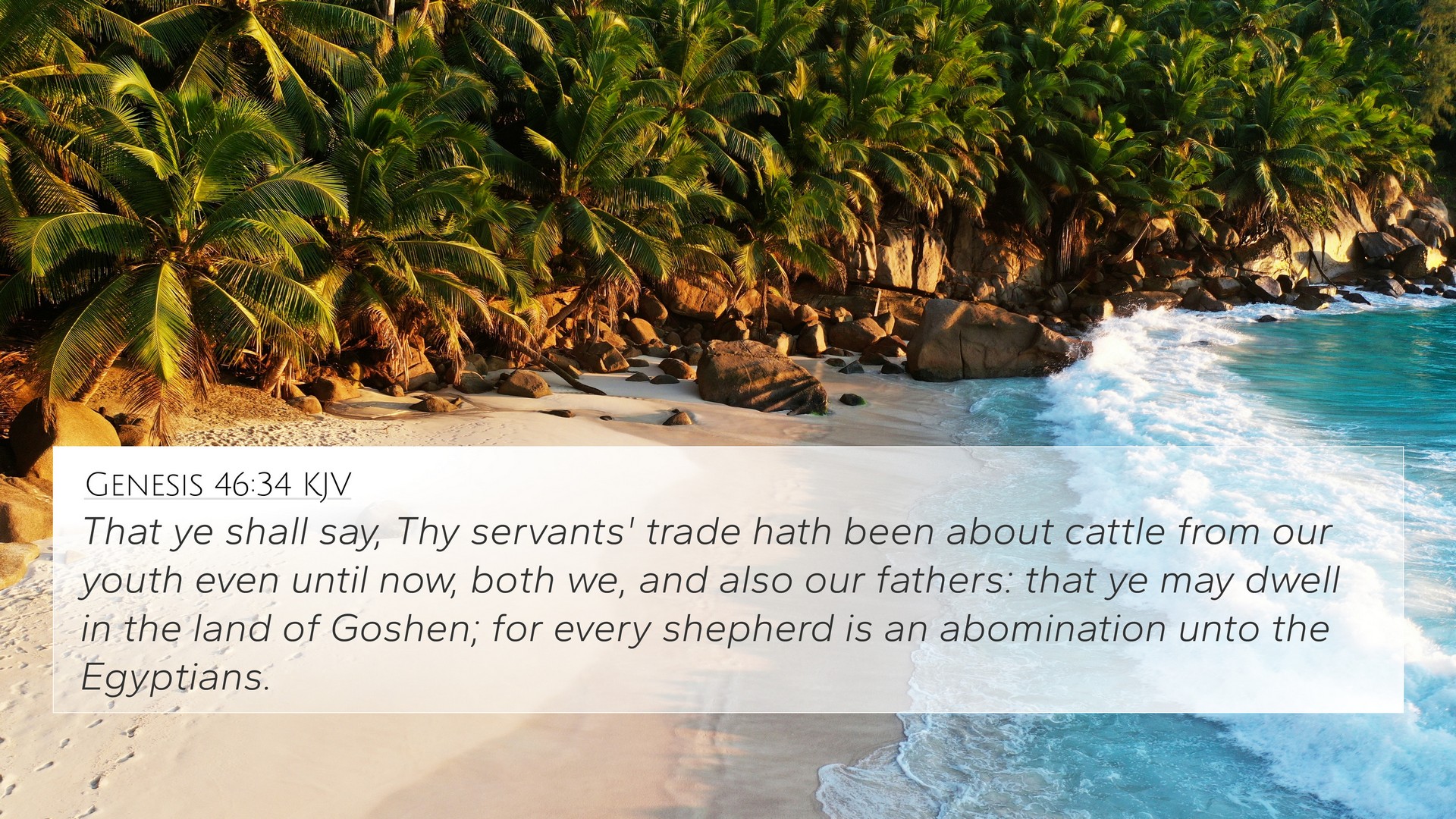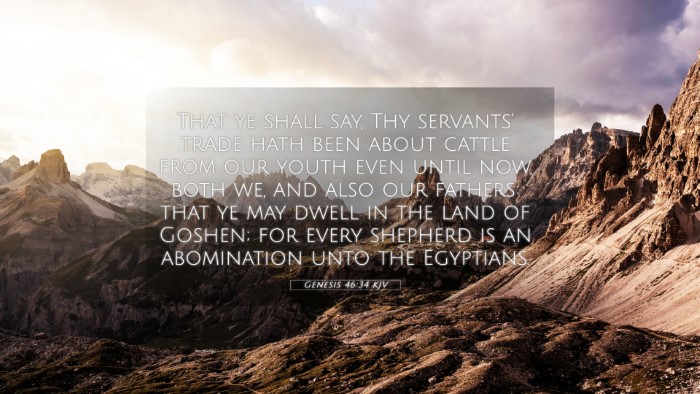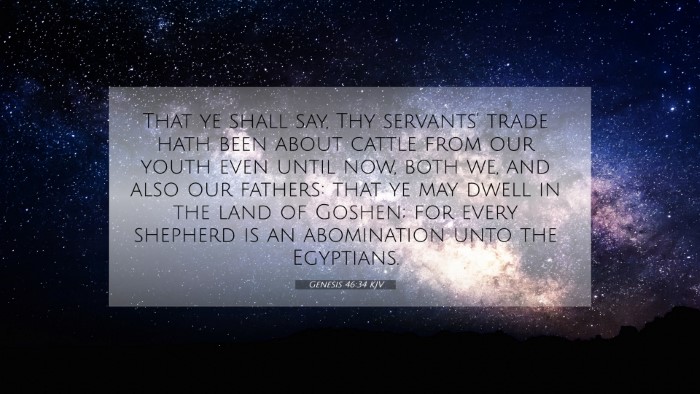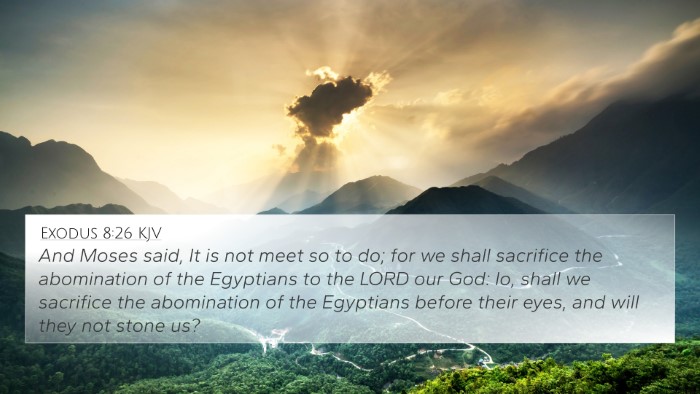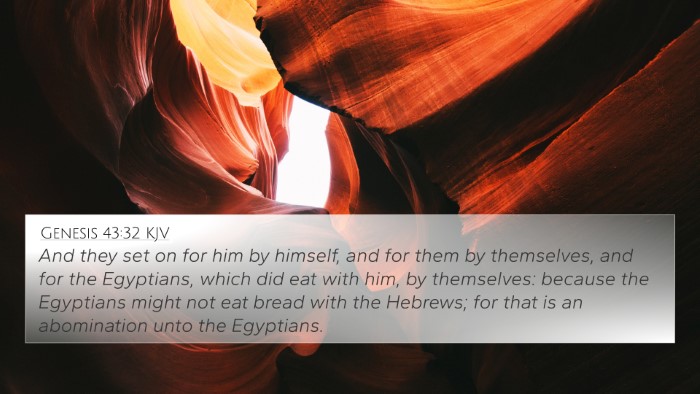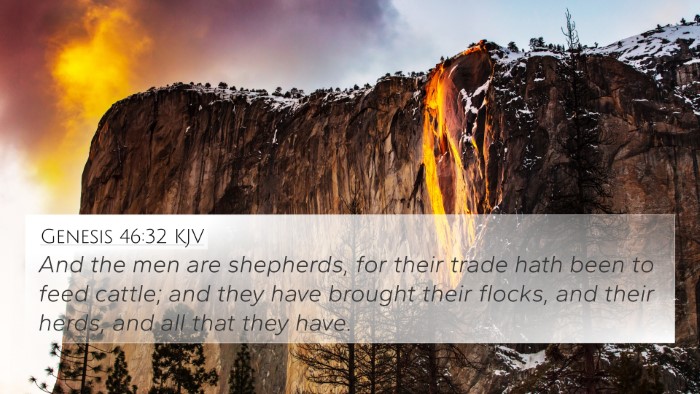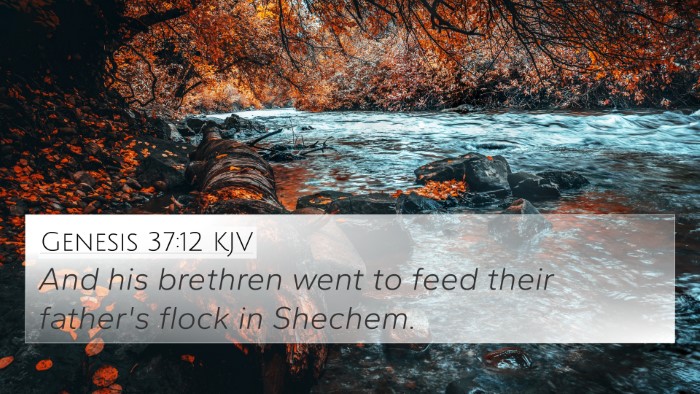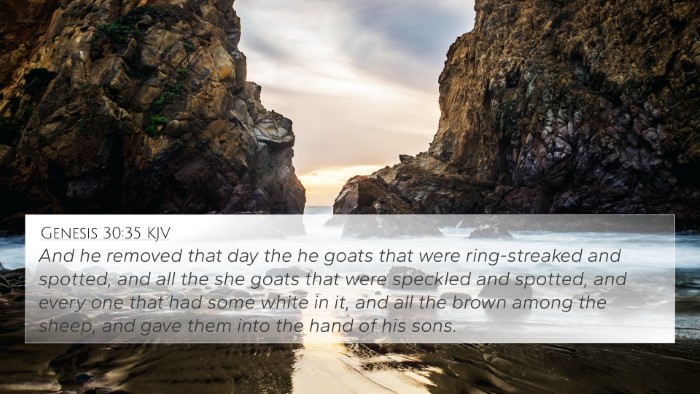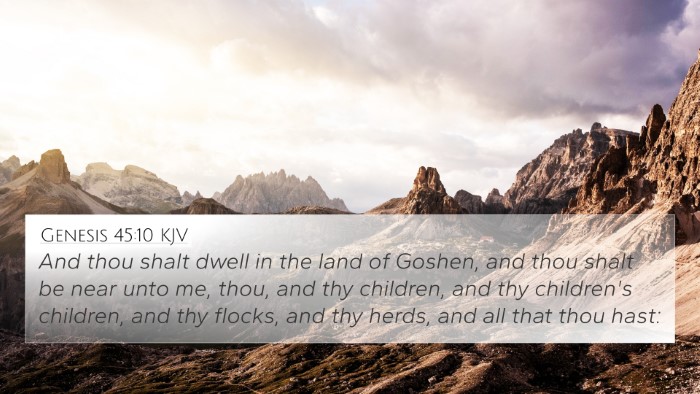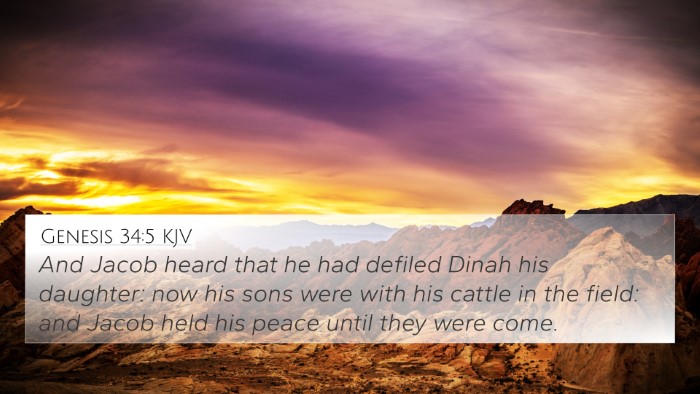Understanding Genesis 46:34
Genesis 46:34 (KJV): “That ye shall say, Thy servants' trade hath been about cattle from our youth even until now, both we, and also our fathers: that ye may dwell in the land of Goshen; for every shepherd is an abomination unto the Egyptians.”
Meaning and Interpretation
This verse occurs during the interaction of Joseph with his family as they prepare to come to Egypt during a time of famine. Here, Jacob instructs his sons on how to identify themselves to Pharaoh and emphasizes their profession as shepherds. The underlying reason for their statement revolves around the acceptance and provision of land in Goshen, a region favorable for their lifestyle, while also highlighting the cultural sensitivities relative to their occupations.
Contextual Insights
- Agricultural Context: The mention of being shepherds indicates the family profession that is deeply rooted in their patriarchal lineage, especially relating to Abraham and Isaac, who also had pastoral trades.
- Cultural Sensitivity: The Egyptians held shepherding in disdain, thus the careful mention of their trade serves to mitigate potential prejudices against them.
- Divine Destiny: This narrative also sets the stage for God's unfolding plan for Israel, as they transition from Canaan to Egypt, foreshadowing their eventual trials in slavery and God's promise of deliverance.
Commentary Insights
Matthew Henry: Henry reflects that this profession underscores the need for distinguishing their identity as God's chosen people in a foreign land. He points out that Jacob's guidance is both practical and divinely ordained.
Albert Barnes: Barnes emphasizes that this verse signifies the importance of familial ties and the trade they embody, noting the broader implications for the children of Israel in Egypt.
Adam Clarke: Clarke adds that the aversion of Egyptians to shepherds serves as a reminder of the cultural barriers that often arise between different societal groups, highlighting a divine setup for their unique position in Egypt.
Cross-References
Genesis 46:34 relates to several other scriptures that deepen its meaning and help establish connections between Bible verses:
- Genesis 31:38-39: Rebekah's awareness of the shepherd lifestyle of her family.
- Genesis 47:1-4: Joseph's introduction of his family to Pharaoh.
- Genesis 43:32: Egyptian's aversion to shepherds.
- Exodus 3:22: The demand for the Israelites to borrow from the Egyptians before leaving.
- Genesis 41:46: Joseph's role in Pharaoh's court and the administration of land in Egypt.
- Genesis 12:16: Abraham, as a shepherd, receiving wealth in Egypt.
- Hebrews 11:9: The faith of Abraham regarding dwelling in foreign lands.
Thematic Connections
This verse introduces various thematic connections in the Bible:
- The theme of exile: Reflects the Israelites' travels and trials as they integrate into a foreign nation.
- Identity of God’s people: Shepherd as a symbol of their pastoral heritage across Biblical narratives.
- Cultural clashes: The abomination of shepherds condemns the misunderstandings that arise in societies.
- God’s providence: The journey of Jacob’s family presages the divine rescue through Moses.
Tools for Deeper Study
To explore Genesis 46:34 further, various tools and methods can be employed:
- Bible Concordance: Use a concordance to locate other occurrences of shepherding in Scripture.
- Cross-Reference Bible Study: Compare related verses for a comprehensive view on the theme of shepherding.
- Inter-Biblical Dialogue: Analyze how Old Testament insights shape understanding in the New Testament.
- Comparative Bible Verse Analysis: Look at narratives across the account of Jacob with Abraham’s and Moses’ experiences.
Conclusion
Genesis 46:34 is a rich verse that threads together identity, culture, and divine providence in the story of Jacob’s family. Understanding it in the context of Scripture not only deepens the comprehension of their experiences but also invites readers to reflect on their journey as God's people through history.
